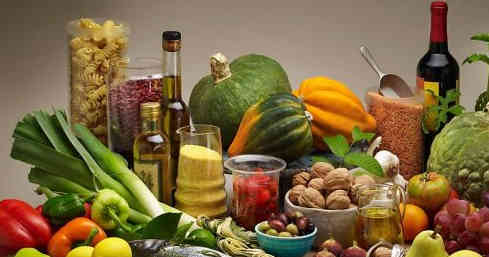How To Model Your Diet On The Healthiest People – And Enjoy Stress-Free Weight Loss With The Mediterranean Diet Plan
The Mediterranean diet is an eating plan based on Mediterranean cuisine, especially olive oil and a glass of red wine, and that’s good to lose weight quickly while being heart healthy in the bargain.
The Mediterranean diet includes fruits and vegetables, fish and grains, blending together the goodness of healthy eating with tastes and aromas of traditional Mediterranean cooking.
What Makes a Mediterranean Diet Appealing?
Interest in following a Mediterranean diet began as early as 1960, when cardiologists first noticed that fewer people in the Mediterranean region suffered heart attacks.
On further evaluation of Greek and Italian populations, a link was established between coronary artery disease and the kind of diet Mediterranean people followed.
Today, a Mediterranean diet is considered among the healthiest eating plans and comes highly recommended for those who wish to enjoy better health and avoid chronic diseases such as cancer, Parkinson’s and Alzheimer’s disease.
Also, the Mediterranean diet helps with weight loss and can prevent type 2 diabetes while extending lifespan.
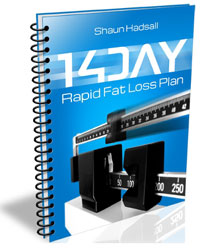
So What Exactly Is a Mediterranean Diet?
The Mediterranean diet is modelled on the traditional cuisine of nations along the Mediterranean sea, and consists largely of eating whole grains, fruits and vegetables, nuts and seeds, beans, and olive oil.
If someone tells you they follow a Mediterranean diet, you can imagine them eating
- healthy fats along with veggies, fruits and whole grain every day
- poultry, fish, eggs and beans at least once a week
some dairy products, but avoiding red meat entirely (or limiting it)
If you truly get into the spirit of things, a Mediterranean diet might also mean having your meals along with friends and family, combining the diet with moderate physical exercise, and relishing the occasional glass of red wine!
It’s Mostly Plant Based Food
The big differentiator of a Mediterranean diet from any other is the focus on consuming vegetables and fruits, herbs and nuts, whole grain and beans.
Essentially, the diet is plant based. While it does permit eating some eggs, dairy products and poultry, the emphasis is on meeting most of your daily dietary needs through plant-based produce.
It’s Also About Healthy Fats
Another unique element of a Mediterranean diet is that you’ll eat healthy fats rather than saturated or trans fats that lead to heart disease.
Your diet will have no butter, only healthy olive oil. This is rich in monounsaturated fat with a lesser cholesterol content and LDL (or ‘bad cholesterol’).
Nuts and seeds that are allowed in a Mediterranean eating plan also contain healthy monounsaturated fat.
Fatty fish such as
- fresh lake trout,
- herring,
- salmon,
- mackerel and
- sardines
have a high content of omega-3 fatty acids.
These are polyunsaturated fats which have several health advantages like lowering inflammation, improving joint function, boosting immunity and facilitating several cellular metabolic activities.
The benefit comes in the form of a lower risk of heart failure or stroke.
Coupled with low salt use, little or no red meat and a glass of red wine every day, this healthy, nutritious method of eating is also extremely effective at extending lifespan and enhancing quality of life.
How Do I Start this diet?
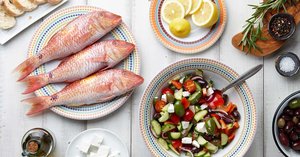
There are many ways to plan meals and go on this healthy diet. Broadly speaking, you should:
- eat specific types of food
- take others only in moderate quantities, and
- eat red meat rarely
Here are a few tips to begin eating healthy…
- Include more vegetables and fruits in your meals. 7 to 10 servings every day is a good start.
- Prefer whole grains over processed food. Whole grain bread, pasta and cereal is readily available. Try other grains like farro or quinoa.
- Stick with healthy fats. Olive oil is essential. Use it instead of margarine, butter or any other cooking oil.
- Eat fish twice or thrice in a week. Grilling it is better than frying. Tuna, salmon, trout and mackerel are excellent picks.
- Enjoy dairy produce. Low-fat yoghurt, some kinds of cheese and skim milk are allowed in a Mediterranean diet.
Which food is eaten sparingly in the Mediterranean diet?
- Cut down on red meat. Instead of meat, eat poultry or fish. If you must eat red meat, keep portions small.
- Avoid eating processed foods, sugar-rich items or refined oils as far as possible.
- Red wine is allowed in this diet plan, but you should limit it to one small glass every day. If you’d rather do without it, that’s fine too.
What is a Food List for this Diet?
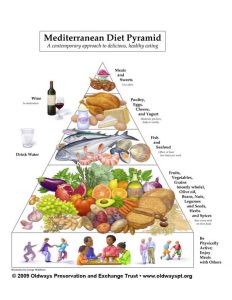
- Vegetables: Cucumber, carrots, cauliflower, broccoli, tomatoes, kale, onions
- Fruits: Banana, orange, apple, grapes, peaches, berries, pears, plums, figs
- Nuts and seeds: Walnuts, hazelnut, cashew nut, almonds, macadamia nuts
- Beans and other legumes like lentils, pulses or chickpeas
- Whole grains: Oats, rye, barley, brown rice, whole wheat
- Fish and seafood: Salmon, sardines, tuna, mackerel, trout, mussels
- Poultry: Chicken, turkey, duck
- Eggs
- Dairy: Cheese, yoghurt, skim milk
- Healthy fats: Olives, olive oil, avocado oil
- Drinks: red wine (1 glass a day), coffee, tea, water
Can a Mediterranean Diet Prevent Alzheimer’s Disease?
A few studies involving people who follow a Mediterranean diet suggest that they are less likely to have Alzheimer’s than others who don’t.
It’s of special interest that a Mediterranean diet slows down cognitive decline in elderly people, counteracts the effects of ageing on memory, and prevents mild cognitive impairment (MCI) progressing into Alzheimer’s disease.
What confers this benefit?
It’s not yet clear. Maybe better blood sugar and cholesterol levels are to thank for this effect. Or maybe brain tissue is better preserved when you follow a Mediterranean diet.
But regardless of the reason, there seems to be an advantage in the Mediterranean diet to lowering risk of heart disease as well as dementia and Alzheimer’s disease.
Pros:
- nutritionally balanced
- diverse flavors and tastes
- health benefits
Cons:
- takes some effort to prepare meals
- moderately expensive
Ranking:
- #1 in Best Diets (All Categories)
- #1 in Best Plant Diets
- #2 in Heart-Healthy Diets
- #3 in Best Fat Loss Diets
Mediterranean Diet Meal Plans
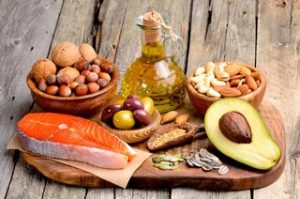
Drawing up Mediterranean diet meal plans in advance can be helpful in sticking with your diet and in shopping for groceries.
Breakfast:
You can rotate between ideas like
- Yoghurt with fruits (apple, strawberries, banana), and oats
- Egg omelette with onions and tomatoes, and a fruit (peach, orange)
- Vegetables stir-fried lightly in olive oil with spices
Oatmeal with raisins, nuts and fruit
Lunch:
You can plan a meal around
- Whole-grain bread vegetable sandwich
- Greek yoghurt with a serving of nuts and fruit
- Mediterranean pizza made of whole wheat bread, olives and vegetables
Dinner:
You could choose between
- Tuna salad with an olive oil dressing, and fruit salad for dessert
- Tossed salad of olives, cheese, tomato, carrot, cucumber and spring onions
- Lasagne
- Broiled fish with baked vegetables and brown rice
- Grilled chicken or turkey with a vegetable and slice of fruit
- Grilled lamb with baked potato
There’s no limit to how many different meals you can whip up with Mediterranean diet recipes. You’ll enjoy tasty, nutritious and versatile dishes that still help you lose weight and stay healthy.
Snacks:
If you’d like a little bite to eat in between meals, pick up
- a slice of fruit
- some baby carrots
- a handful of nuts
- a little cup of Greek yoghurt
The nice thing about a Mediterranean diet is that you can even eat out without breaking it.
Simply order fish or seafood as your main course, and request to have it cooked in olive oil. Avoid butter and insist upon whole-grain bread or pasta.
How Much Can You Eat?
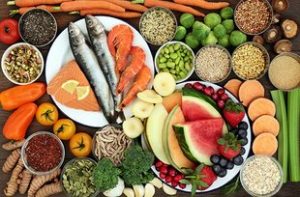
This diet is more of a pattern of eating than a rigidly structured dietary plan. So you are free to decide how many calories to consume.
Clearly, to lose weight you’ll have to eat fewer calories than you burn off in exercise and activity. But within that limit, you’re free to choose how much of each kind of food to eat.
Just as long as you stick to eating fruits, vegetables, nuts, whole grains and olive oil, and make sure you eat moderate quantities, you’ll enjoy all the advantages of the Mediterranean diet.
What Does This Diet Cost?
A lot depends upon what you plan to eat, how elaborate your Mediterranean diet meal plans are, and if the ingredients are readily available in your area.
Olive oil, nuts, fresh produce and fish can be expensive in some places. And most of the suggested types of food are only optional. So if you don’t want to drink red wine or eat avocados, you can pick less expensive alternatives.
Can I Lose Weight on Mediterranean Diet?
Yes, this diet can help you lose weight. Even though it may seem unlikely that a fat loaded meal plan (with cheese, olive oil and avocados) might actually add a few pounds, research has proven otherwise!
A lot does depend upon your ‘calorie deficit’. While you stick with the kind of foods allowed under the Mediterranean diet, if you consume fewer calories or burn them off through exercise, you will lose weight.
More importantly, you’ll do it in a healthy and sustained way that simultaneously reduces your risk of heart and brain disease.
An analysis published in the 2019 issue of ‘The Lancet‘ followed up over 5,800 adults over 5 years and found significant reduction in waistlines in the group following a Mediterranean diet.
A meta-analysis of 21 published papers, reported in Obesity Reviews, however is still undecided on whether this eating plan reduces weight or lowers your chance of becoming obese.
Is Keto or Mediterranean diet better?
Strictly from the perspective of what you can eat while on the diet, a keto diet has a higher fat content. However, both diets emphasize eating healthy fats.
A major difference between them is that a keto diet is a rigid plan that restricts your food intake and involves counting calories and measuring progress. A Mediterranean diet, on the other hand, is a general advisory on eating.
This explains why the Mediterranean diet is often considered one of the best ways to eat healthy… and the keto diet is usually voted among the worst!
The first is about eating plant-based food, fresh produce and lean protein. The keto diet overstuffs you with high-fat food, which forces your body to burn it as an energy source – with metabolic shifts that aren’t always pleasant.
So a keto diet is harder to stick with, tougher to handle, and a more unpleasant way to lose weight – one that most dieters are glad to give up after they hit a target weight. The Mediterranean diet, with fewer rules, is more fun – and still just as effective.
The Mediterranean Diet FAQ
Most Frequently Asked Questions About A Popular Weight Loss System

1. What Foods Are Not Allowed on the Mediterranean Diet?
Because this is not a conventional diet but more of a set of guidelines that recommend particular types of food, there are no absolute exclusions.
Still, those who go on a Mediterranean diet often avoid these foods:
- white bread, regular pasta, pizza
- refined flour and grains
- refined oils such as groundnut oil, soybean oil, coconut oil, or canola oil
- processed snacks like sugar-loaded pastries, candy and soda
- red meat, hot dogs, steak and similar meats
- any type of packaged or processed food
2. Can You Eat Rice on the Mediterranean Diet?
Some get even more specific, asking: “Can I eat brown rice on Mediterranean diet?”
Yes, you can eat brown rice.
The guiding principle with the Mediterranean style of eating is to include more whole grains and avoid refined grains, flour or processed foods.
So whole grains like brown rice, millet, couscous, quinoa, barley and farro are allowed, but not white bread and pasta.
3. Can You Eat Bananas on Mediterranean Diet?
The diet which emphasizes intake of whole grains, vegetables and unprocessed foods also makes fruits a cornerstone of your daily caloric needs.
Fresh fruits like bananas are allowed, as are others like apples, pears, peaches, grapes, berries, figs and various types of melons.
Bananas make ideal add-ons for a breakfast of cereal or oatmeal, and a good snack in between meals whenever you feel hungry.
4. Is Oatmeal OK on Mediterranean Diet?
As a whole grain that’s also filling, healthy and has a low glycemic index, oatmeal is a great inclusion on any Mediterranean meal plan.
You can eat it for breakfast along with fruits (apple, banana, berries, or figs) or nuts (almond, cashews, or hazelnut). Adding honey to taste makes this a delicious snack or meal.
5. Can You Eat Eggs on This Diet?
Are eggs okay on a Mediterranean diet? It’s a logical question to ask about a diet that lowers stroke and heart attack risk by 30%, according to a study in the New England Journal of Medicine.
The answer is: Yes, but only with egg whites.
How many eggs can you eat on the Mediterranean diet?
There’s no limit on how many egg whites you can eat while on this diet.
However, depending upon your blood cholesterol levels, you may be well advised to restrict yourself to a maximum of 4 yolks in a week.
6. Is Peanut Butter OK on Mediterranean Diet?
A Mediterranean food guide that details the food pyramid permitted to dieters on this plan recommends no more than 1 tablespoon of peanut butter twice a day.
This guideline applies to other nuts and seeds, including sesame and sunflower seeds, walnuts, pecans or almonds.
The higher unsaturated fat content in these foods may help increase HDL (‘good’ cholesterol) levels in blood that protects against heart disease.
7. What Kind of Cheese Is Allowed on the Mediterranean Diet?
Traditional meals in populations that live around the Mediterranean sea include moderate amounts of cheese and yoghurt.
These are typically low or non-fat dairy produce that have few adverse effects even if you occasional over-indulge.
Dairy products that make up a Mediterranean diet include Parmigiano, ricotta, brie, corvo, feta and haloumi as well as Greek yoghurt.
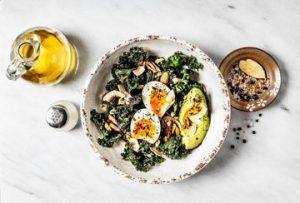
8. Is Coffee OK on Mediterranean diet?
Yes, coffee is okay while you’re on this diet – as long as you drink it in moderation, and without added sugar!
And while black or green tea is fine, too, as is a glass of red wine daily, the drink of choice for any diet is… water.
Avoid sweetened fruit juices and beverages, though.
9. Can You Eat Potatoes on Mediterranean Diet? Are Sweet Potatoes on the Meal Plan?
Potatoes often get a bad rap on diet sites, being broadly tainted as “bad carbs”. That’s no always true… as folks who live in the Mediterranean know!
So yes, you can eat potatoes while you’re on this diet… both sweet potatoes and the white kind.
They not only provide calories for metabolic activities, but also serve as a source for vitamins (B6 and C), minerals (potassium) and fiber.
But remember that they are carb rich, and over-indulging in potatoes can interfere with your weight loss plans!
10. Is Mayonnaise OK on Mediterranean Diet?
Sorry, but no. Mayonnaise isn’t on the list of foods you can eat on a Mediterranean program – so consider replacing it with a low fat sauce instead.
While some dairy is permitted, you can’t expect to load snacks with processed cheese or eat a tub of high fat yoghurt or ice cream and expect to lose weight or beat diabetes or enjoy heart health benefits!
Some dairy? Yes. A lot of mayo? No.
11. Is Bacon Allowed?
Well, yes… and no.
Avoid red meat while you’re on this diet. If you must eat red meat, keep it in moderation.
You can enjoy a small fatty cut of bacon to flavor your soups or stews, or add it to beans and stir-fried vegetable without losing the several benefits of a Mediterranean eating plan.
But you’re better off with lean meats or poultry instead.
12. Can You Eat Chocolate on the Mediterranean diet?
Yes, dark chocolate is okay to eat on your diet.
Once again, it’s all about moderation. An occasional indulgence is fine. Gorging yourself on candy every day and expecting to drop weight or enjoy better health is unrealistic.
Dark chocolate has several benefits as it is rich in anti-oxidants and increases longevity while protecting against heart disease.
13. Is Honey OK on Mediterranean diet?
Residents in Mediterranean climes enjoy fresh fruit rather than artificially sweetened foods for dessert. So while they do have a sweet tooth, they rarely add sugar to meals.
Honey falls under the head of sugars and sweeteners. So if you plan to follow a diet that mimics what Mediterraneans eat, then no, honey is not ok. The same goes for white or brown sugar, corn syrup (which is also used in sodas and sweet drinks), or even raw sugar and molasses.
14. Can You Have Milk While On This Diet?
The traditional or conventional form of this eating pattern didn’t specifically mention milk or dairy products, although multiple servings of dairy are permitted under more modern versions of the Mediterranean diet.
One reason is that excluding dairy entirely from a diet makes it harder to follow. But if your goal is to mimic what’s eaten in the Mediterranean region, then avoid milk and consume dairy in the form of yoghurt and cheese alone.
15. What Sweets Can You Eat on Mediterranean Diet?
Several sweet desserts find a place on any Mediterranean diet plan or list of recipes for dieters following this system of healthy weight loss.
Among the favorite sweets that don’t violate the broad guidelines of this diet are:
- Carrot Polenta cake
- Hazelnut shortbread
- Orange olive oil cake
- Lemon cake (gluten free)
- Honey yoghurt with berries
- Fresh fruit and nuts with whipped yoghurt
- Bruleed ricotta
16. Can You Eat Sourdough Bread on Mediterranean Diet?
Although bread was originally a staple in conventional diets in the region around the Mediterranean sea, that was often sourdough bread that was stone ground in places like Nicotera and Greek states like Crete and Corfu.
A recent study on the food pyramid of items included in modern Mediterranean diets included sourdough wholemeal bread among other foods like fruit, vegetables, pasta, beans and dairy that were permitted.
The yeasts that ferment sourdough bread have lower glycemic index, which is an added advantage to dieters.

17. What Bread Can You Eat on Mediterranean Diet? Is Pita Bread Part of the Diet?
Bread that’s made from whole grains or sourdough bread that’s stone ground are the best choices. This bread has a higher content of minerals and protein, which makes them healthier choices than white bread.
You can eat pita bread or whole grain bread dipped in olive oil with hummus. It is filling, delicious and nutritious.
18. What Fruits Are Allowed on Mediterranean Diet?
Unique weather conditions in the Mediterranean region make it ideal to grow some kinds of fruits. Naturally, those made it into the region’s diet.
Most Mediterranean diet plans list the following fruits:
- apricots
- pears
- cherries
- apples
- bananas
- avocados
- figs and dates
- grapes
- olives
- grapefruit and oranges
- melons
- berries like strawberry
- tomatoes
- peaches
- pomegranate
19. Is Popcorn OK on the Diet?
It might appear at first glance that popcorn shouldn’t be on any diet as it is buttery and often salted.
But as long as you stick with whole grain popcorn and replace butter with a little olive oil for an interesting flavor, there’s no reason why it shouldn’t be on your list of healthy snacks.
Include other whole grain foods like pasta and bread to round off your meal plan.
20. Is Cottage Cheese OK on Mediterranean Diet? Can You Eat Cheese?
Cottage cheese made from skim milk (1% or fat-free milk) is okay to include in your meal plans. Try and restrict dairy to three servings every week, and supplement it with Greek yoghurt, egg whites and skim milk.
21. Can You Eat Pizza on the Mediterranean Diet?
Pizza is Italian. Italy is a Meditteranean nation. So is pizza okay to eat while you’re on this diet?
Umm… no. A version of the Mediterranean diet that’s heavy on pizza, pasta and meat sounds appealing – but it isn’t the kind of food that kept peasants healthy and fit into old age.
The basis of our modern diet is rooted in the past, and poor villagers couldn’t afford many additives and extras that make our cuisine so unhealthy and fattening. A return to these roots is what can make us healthier – so say ‘No’ to pizza.
22. Can You Drink Alcohol on this Diet?
Drinking alcohol may well be a part of the region’s lifestyle, but it is moderate in quantity and well spaced out over the week.
A small glass of red wine every day with an overall low intake of spirits complements the near-natural food that’s included in most recipes and meal lists for dieters following this plan.
Also, avoid binge drinking and beer that’s carb loaded while you’re on this diet.
23. Is Wine Part of the Mediterranean Diet?
Red wine, drunk in moderation, is okay.
Some research proves that alcohol intake may protect against heart disease. But there’s also some risk from regular alcohol consumption.
If you already drink wine, and feel the need to continue, then limit yourself to one small glass every day while on the Mediterranean diet.
If you don’t drink, there’s no reason to begin just because you’re on this diet!

For another comprehensive weight loss program that helps you lose fat rapidly and in a healthy way, see Shaun Hadsall’s popular “14 Day Rapid Fat Loss Plan” – and read our full review here.
